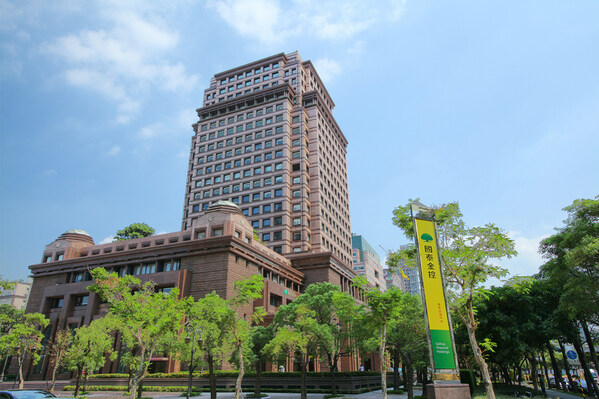TAIPEI, March 5, 2024 /PRNewswire/ — Cathay United Bank (CUB) is a Domestic Systemically Important Bank (D-SIB) in Taiwan. Notably, CUB struck a new high in 2023 when its net income increased 13% year-on-year to US$950 million in 2023. In a show of solidarity at the Strategic Leadership Conference organized by CUB in January, Chairman Andrew Kuo led senior management and over 300 local and overseas unit heads in committing to the 1-2-3-4 Strategy, which addresses challenges and continues business performance enhancements in the next 3 years.
The 1-2-3-4 Strategy consists of 1 vision (“One Bank“), 2 growth engines (Digitalization and Intelligence), 3 business focuses (New Retail Banking, New Corporate Banking, and New Markets), and 4 fundamental pillars (Strong IT Security, Substantial Talent Pool of Interdisciplinary Professionals, Stringent Risk Management and Compliance Frameworks, and ESG Commitments). Simultaneously, CUB will tap into different markets by fully drawing on its years of experience in business transformation and capitalize its cross-border, cross-selling, and cross-field capabilities. To embrace future challenges and opportunities, CUB endeavors to build a resilient business foundation by enhancing the four fundamental pillars, thereby realizing its “One Bank” vision and propelling its earnings to new heights. CUB President Alan Lee noted that CUB will place increasing importance on all of its business focuses in the future, with plans to reinforce its corporate banking business and overseas markets in the next 3 years for a stronger and more balanced growth in profits.
CUB is one of the Cathay FHC’s many subsidiaries. The Cathay Group has assets totaling around US$400 billion, and offers services spanning insurance, banking, and asset management. Compared to its banking peers in Taiwan, CUB has the strongest business footprint in ASEAN countries, with its financial services being available at its 232 business premises across mainland China, Hong Kong, Vietnam, Cambodia, Thailand, the Philippines, Indonesia, Singapore, Malaysia, Laos, and Myanmar. Apart from cross-selling services developed by CUB and other Group subsidiaries through partnerships, the Bank is also an exceptional cross-border service provider. For example, its Global MyB2B boasts the Global Account Aggregation feature that aggregates accounts opened at the Bank’s overseas branches, allowing corporate customers to access overseas cash management services through a single online banking account, thus elevating the Group’s efficiency in managing corporate banking business.
As the first bank in Taiwan to sign the Equator Principles, CUB’s outstanding sustainable loans nearly reached an impressive US$2 billion in 2023. As CUB looks towards the future, it will continue its search for more partners in green transition, and aspires to introduce green transition resources while providing funds. For instance, CUB was the first in Asia to join the CDP Carbon Disclosure Item-Commercial Bank Project, where it partnered with the CDP in supporting the SMEs’ integration into the global sustainable supply chain as well as identifying opportunities for carbon reduction.
CUB provides various sustainable loans in 67 overseas locations spread across the ASEAN countries and the Greater China region. In 2022, CUB partnered with the Asian Development Bank to successfully conclude a green finance project in Vietnam, becoming the first Taiwanese bank to enter Southeast Asia’s green finance market. In the meantime, CUB Manila Branch also signed the Philippines’ first sustainability linked loan with the Villar Group. Furthermore, CUB Singapore Branch closed a green trade loan deal with Apeiron Bioenergy (Apeiron), a leading player in Singapore’s sustainable energy sector. Going forward, CUB will develop its overseas market by employing its cross-border, cross-selling, and cross-field strengths to its greatest extent, thereby establishing itself as a steadfast financial pillar of support for companies seeking corporate sustainability.
View original content to download multimedia: Read More
